2011 China Tax Law Forum and the First China Tax Lawyers Forum
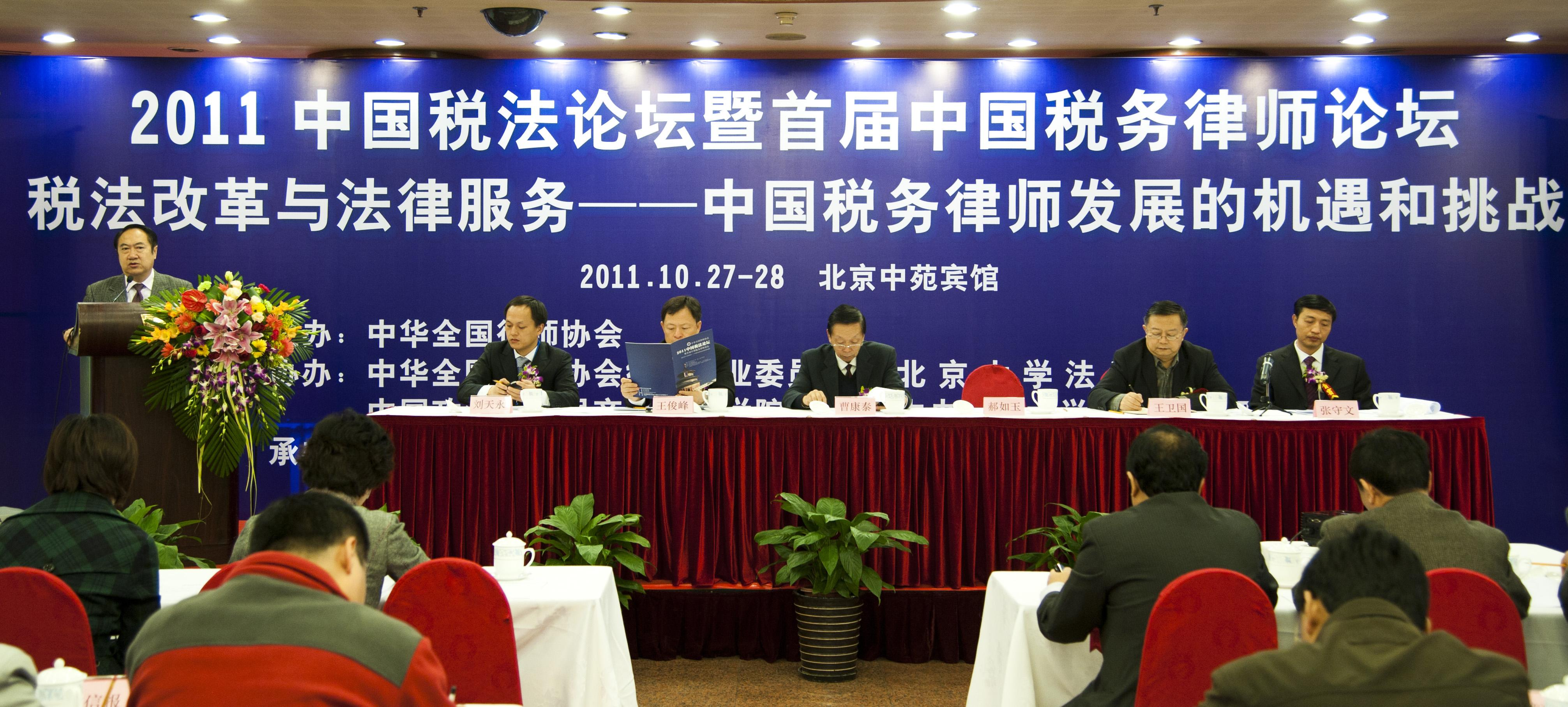
From October 27 to 28, 2011, "2011 China Tax Law Forum and the First China Tax Lawyers Forum" was successfully held in Beijing Zhongyuan Hotel. The forum was organized by the All-China Lawyers' Association (ACLA), undertaken by Beijing Hwuason Law Firm, and co-organized by the Economic Committee of ACLA, Peking University Law School, China University of Political Science and Law School of Civil and Commercial Economics, and the Institute of Taxation Education of Central University of Finance and Economics. The theme of the forum was "Tax Law Reform and Legal Services - Opportunities and Challenges for the Development of Tax Lawyers in China", and more than 150 professionals from governmental organs, universities and colleges, enterprises, law firms, and foreign tax lawyers in tax law theory and practice attended the forum. The forum was attended by more than 150 people.
During the two-day program, the forum discussed the impact of tax law reform on the development of lawyers, the rule of law in finance and taxation and tax lawyers, the new development of tax-related legal business in the context of internationalization, and tax disputes and the protection of taxpayers' rights and interests. Cao Kangtai, deputy director of the Social and Legal Affairs Committee of the National Committee of the Chinese People's Political Consultative Conference (CPPCC), party secretary and director of the former Legislative Affairs Office of the State Council, Hao Ruyu, deputy director of the Finance and Economic Committee of the National People's Congress, Wang Weiguo, president of the China Banking Law Research Association and dean of the School of Civil, Commercial and Economic Law of the University of Political Science and Law of China, Wang Junfeng, vice president of the All-China Lawyers' Association (ACLA) and chairman of the management committee of the King & Wood Mallesons, and Rihong Li, deputy secretary-general of ACLA Xiao Jinquan, Director of the Economic Professional Committee of the All-China Lawyers' Association; Liu Tianyong, Director of Beijing Hwuason Law Firm, the organizer of the forum; Ni Hongri, a researcher of the Development Research Center of the State Council at the level of a full division; Sun Gang, Director of the Taxation Research Office of the Institute of Fiscal Science of the Ministry of Finance and a researcher; Gao Yungen, Division Director of the International Department of the State Administration of Taxation; Zhang Shouwen, Dean of the School of Law of Peking University; Tang Gungliang, Dean of the School of Taxation of Central University of Finance and Economics Xu Mengzhou, Professor, School of Law, Renmin University of China; Shi Zhengwen, Budget Supervision Advisor of the Standing Committee of Beijing Municipal People's Congress and Director of the Research Center of Fiscal and Taxation Law of China University of Political Science and Law; Jia Shaohua, Director of the Institute of Taxation Education of the Central University of Finance and Economics and former Director of Yangzhou Taxation College of the State Administration of Taxation; Zhou Xuzhong, Vice Dean of the School of Law of the Capital University of Economics and Business; Zhu Daqi, Director of the Economic Law Department of the School of Law of Renmin University of China; Teng Xiangzhi, Associate Researcher, Institute of Finance and Trade, Chinese Academy of Social Sciences. Teng Xiangzhi, Associate Researcher of the Institute of Finance and Trade of the Chinese Academy of Social Sciences, Qi Jinbo, Professor of the Central Judicial Police College, Chen Naixin, Professor of the School of Law of Xiangtan University, Cao Fuli, Partner of Jones Day, as well as experts and scholars from Peking University, Tsinghua University, China University of Political Science and Law, the Central University of Finance and Economics, Xiamen University, the University of Capital City University of Economics and Trade and Xiangtan University, etc., took part in the seminar.
Ⅰ. Opening Ceremony of the Forum
At 9:00 a.m. on October 27, the forum held an opening ceremony, presided over by Zhang Shouwen, Dean of the Law School of Peking University, Cao Kangtai, Deputy Director of the Social and Legal Affairs Committee of the National Committee of the Chinese People's Political Consultative Conference (CPPCC) and former Secretary of the Legislative Affairs Office of the State Council and Director of the Party Group, Hao Ruyu, Deputy Director of the Finance and Economic Committee of the National People's Congress (NPC), Wang Weiguo, President of the China Banking Law Research Association and Dean of the School of Civil and Commercial Economics and Law of the University of Politics and Law of China, respectively, and Wang Junfeng, Vice President of the All China Wang Junfeng, vice president of the All China Lawyers Association and chairman of the management committee of King & Wood Mallesons Law Firm, delivered a speech on behalf of the organizer, and Liu Tianyong, director of Beijing Hwuason Law Firm, delivered a speech on behalf of the contractor.
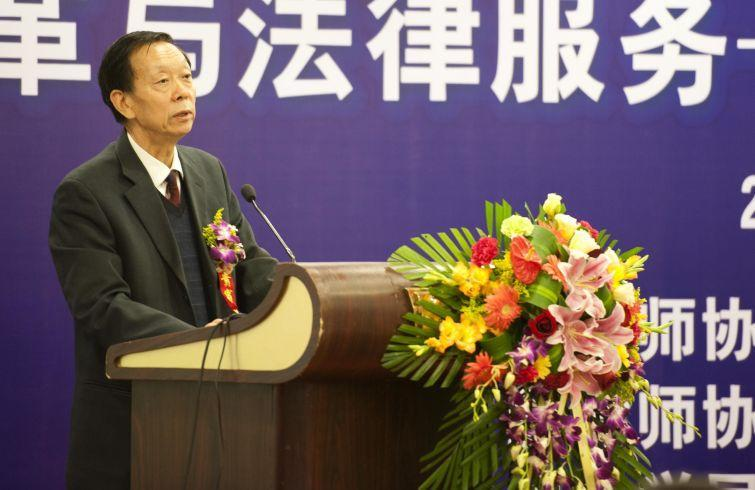
Pictured is Director Cao Kangtai's speech
Director Cao Kangtai believed that the Tax Law Forum was held at the right time. He reviewed the significant achievements of China's tax legal system construction in the early stage of the founding of New China, after the reform and opening up, and since the 21st century, and put forward that the tax legal system needs to be further improved in four aspects, such as strengthening and perfecting the legislation, comprehensively cleaning up the tax regulations and normative documents, strengthening the levy management and perfecting the rules of the tax procedure, as well as correcting taxes and clearing up the fees, etc., and made a speech to the He also expressed great expectations for the tax lawyers to play a more active role in tax reform and tax legislation, and to promote the standardization of tax law enforcement.
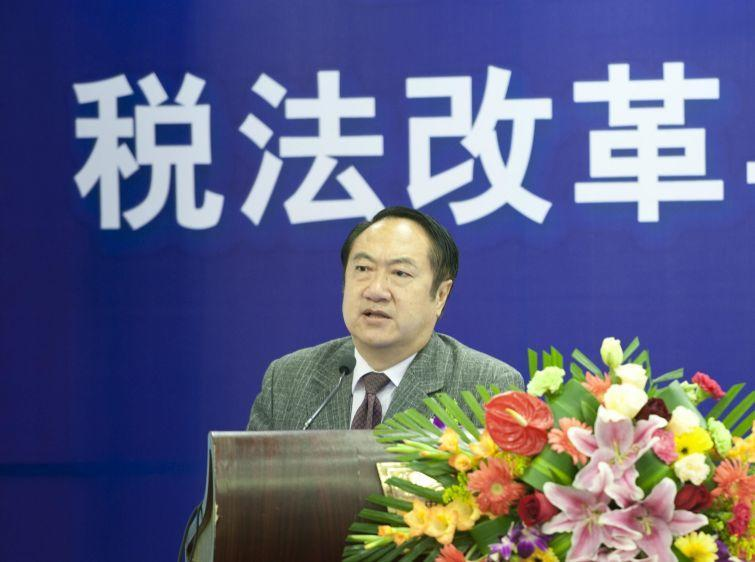
Pictured is Director Hao Ruyu's speech
As a guest speaker attending the forum for the second time, Director Hao Ruyu firstly affirmed the great significance of the concept of tax lawyers put forward in this forum, believing that tax lawyers safeguard the interests of the state and taxpayers from the level of law, which is in a certain sense more important than that of tax accountants from the level of tax technology. Secondly, he proposed that China should speed up and strengthen the tax legislation of each type of tax from the perspective of tax legalism by combining the two major legislative power settings in the world, which must be legislated by the parliament and allow partial authorization. Finally, he pointed out that tax law intermediary forces, such as tax lawyers, are very important for both securing state revenues and safeguarding the legal interests of taxpayers.
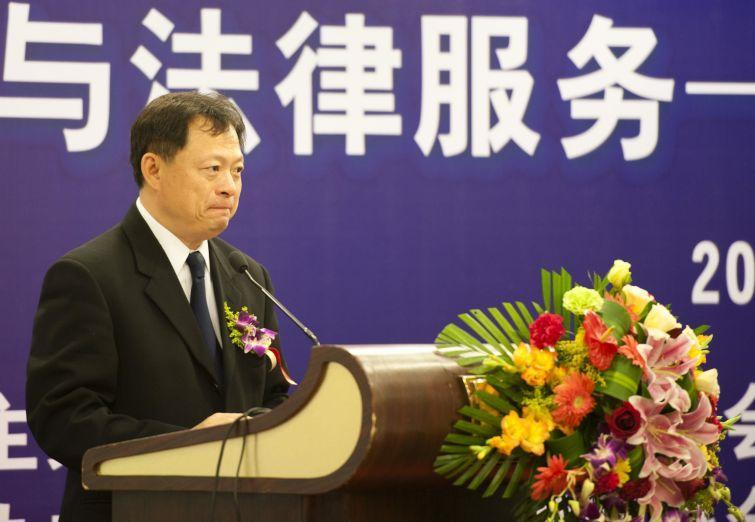
Pictured is President Wang Junfeng's speech
On behalf of the organizer, Mr. Wang Junfeng expressed his gratitude to the guests attending the forum, considered this forum a great event in the lawyers' profession, and praised the efforts made by HUAXA and Mr. Liu Tianyong for the growth of tax lawyers in China. He pointed out that in today's increasingly complex business environment, tax lawyers make use of the advantage of mastering knowledge of taxation, law, accounting and finance to participate in the activities of enterprises, carry out tax planning for enterprises, and make important contributions in the process of avoiding unnecessary tax risks. The growth and development of China's tax lawyers, on the one hand, need to strengthen the guidance to law graduates, on the other hand, can reverse the situation that China's tax legal services are monopolized by other international organizations.

Pictured is President Wang Weiguo's speech
President Wang Weiguo, on behalf of the Banking Law Society, expressed warm congratulations to the convening of the forum. From the perspective of the correlation between the money lent by banks to enterprises and the money taken away from enterprises by taxes, he put forward that in the current economic situation, we should focus on the survival of small and medium-sized enterprises, and believed that it was necessary to alleviate the tax burden of enterprises and standardize the enforcement of taxes in order to promote the development of enterprises. In terms of playing the role of tax lawyers, he believes that the emergence of tax lawyers can reduce the cost of tax collection by the government, safeguard the rights and interests of taxpayers, and disseminate the knowledge of tax law. Finally, he expressed the good wishes of universities and lawyers to work together to promote China's tax reform.
On behalf of the organizer, Director Liu Tianyong firstly thanked all the participants for their understanding and support for the forum, and secondly said that the significance of the forum is to build a platform for professionals to communicate and discuss together, and on the other hand, to discuss how tax lawyers can start and develop, and how to contribute to the promotion of the national tax legal system.
Ⅱ. The Impact of Tax Law Reform on the Development of Lawyer Industry
The theme of the seminar "the impact of tax law reform on the development of lawyers" was hosted by Xiao Jinquan, Director of the Economic Committee of the All-China Lawyers Association, Shi Zhengwen, Budget Supervision Advisor of the Standing Committee of the Beijing Municipal People's Congress and Director of the Center for Fiscal and Taxation Law of China University of Political Science and Law, Liu Tianyong, Director of the Hwuason Law Firm of Beijing Municipality, and Qi Jinbo, Professor of the Central Institute of Judicial Police delivered speeches respectively. delivered speeches respectively.
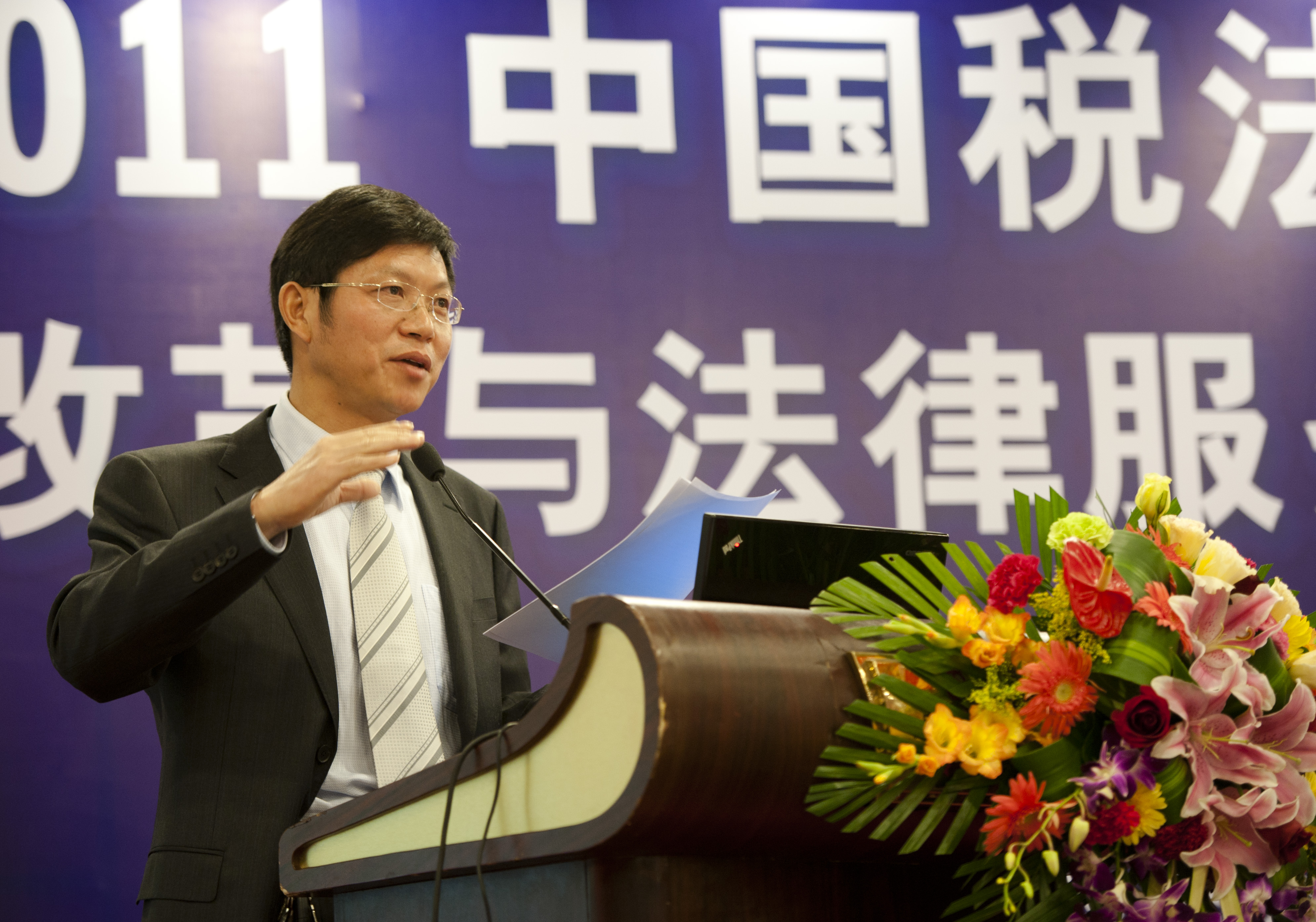
The picture shows Prof. Shi Zhengwen's speech
Prof. Shi Zhengwen believes that the structural defects of the current tax law, which is dominated by indirect tax, have created a reverse regulation of fair distribution; the high legal tax burden has created paradoxes, such as strict enforcement of the law exacerbating tax evasion by taxpayers; and the over-principled nature of the law is not conducive to increasing taxpayers' compliance with the tax law. At present, China's direct tax reform has three major focuses on commodity tax, income tax and property tax in terms of substantive law. The reform of value-added tax (VAT) should incorporate real estate into the scope of deduction and expand the scope of the service industry, the reform of income tax focuses on the promotion of the comprehensive tax system of personal income tax in order to truly play the function of regulating, and the reform of property tax focuses on the full-scale introduction of real estate tax. The direct tax reform will give rise to the market of tax law services such as tax filing, planning, dispute resolution, etc. and promote the development of tax lawyers in China. On the one hand, the taxpayers include a large number of natural persons rather than being limited to the current enterprises, and on the other hand, the complexity of the tax system will enhance the taxpayers' awareness of the demand for tax law services.
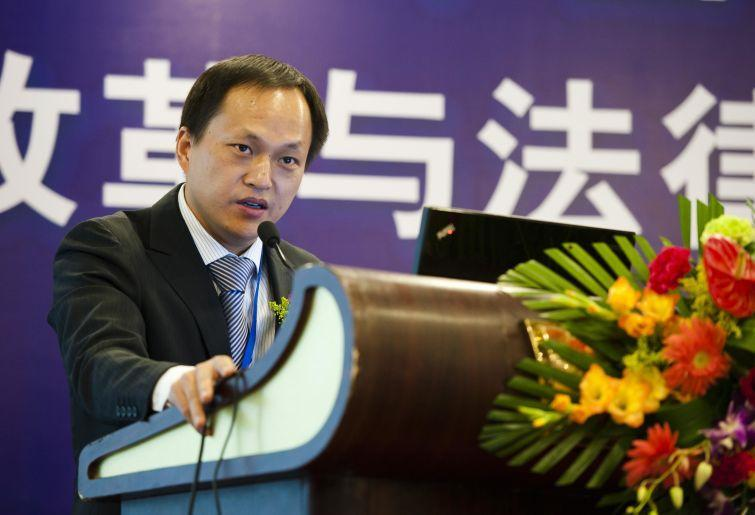
Pictured is Director Liu Tianyong's speech
Director Liu Tianyong emphasized the value of tax lawyers' specialization and enhanced cooperation, and believed that the legal attribute of tax-related behavior is the fundamental attribute, and the economic attribute is only the technical characteristic. He combined the rapid development of tax lawyers in the United States and the background of China's tax law reform, and proposed that after the tax law is highly developed in the future, in the field of disputes and the localized tax-related field, domestic tax lawyers will have the advantage to compete with the "big four" in the tax law. In the highly developed tax law in the future, domestic tax lawyers will have the advantage of competing with the "Big Four" in the field of dispute and localized tax-related areas. Under the current tax system, the main business of tax lawyers includes regular legal services, tax-related audits and related services, tax incentives, tax planning for major issues, cross-border tax services, taxpayer's rights remedies, and personal tax law services.
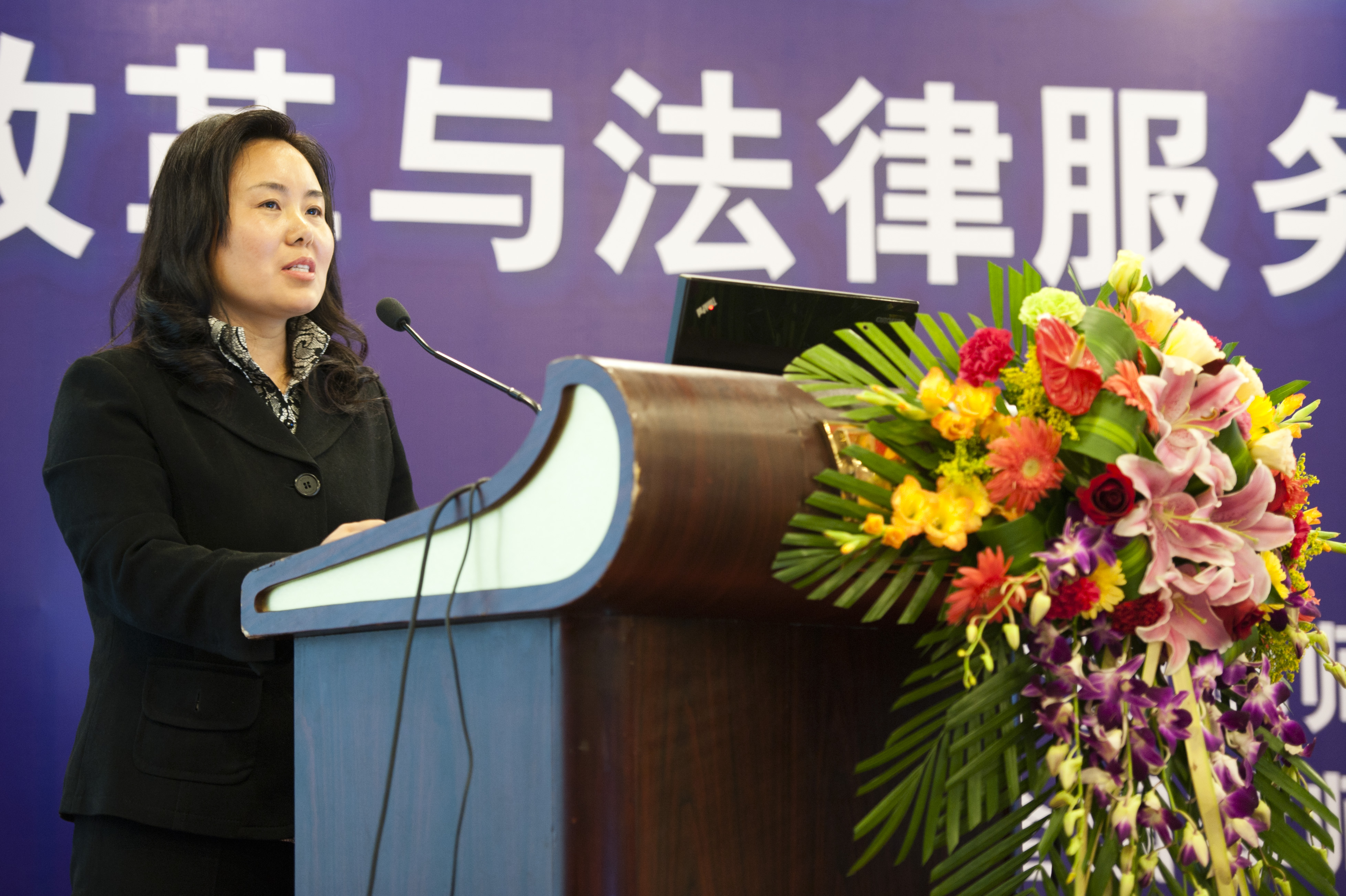
The picture shows Prof. Qi Jinbo's speech
Prof. Qi Jinbo analyzed the tax-related risks of the lawyers' industry, and believed that the knowledge-intensive, intelligence-intensive and resource-intensive characteristics of the lawyers' industry make the differences in the salary management, cost composition and tax payment method with the ordinary service industry, and highlighted the problems in the implementation of the policies related to the career development of the law firms, the risk of practicing law, the social security and the training fund, and put forward the proposal to regulate the tax planning behavior of the lawyers, to reduce and improve the tax rate of the law firms. Industry tax planning behavior, reduce and control the lawyer industry tax risk, encourage the industry tax planning scientific research, promote scientific research results, increase training efforts, improve the overall level of the industry and other means to control the lawyer industry tax-related risk management.
Ⅲ. The rule of law and tax lawyers
The theme of the seminar "the rule of law and tax lawyers" the first section by the renmin university of china institute of finance and taxation law, director of renmin university of china institute of finance and taxation law XuMengZhou presided over by the development research center of the state council, professor NiHongRi, the ministry of finance institute of financial science research institute of taxation research office director, researcher SunGang, the chinese academy of social sciences, associate researcher, doctorate of law, the Chinese academy of social sciences, institute of finance and trade Mr. Teng Xiangzhi, associate researcher and postdoctoral fellow in law at the Chinese Academy of Social Sciences, delivered speeches respectively. The second session was moderated by Mr. Wang Zhaohui, Deputy Director of Tax Law Committee of Beijing Lawyers Association and Senior Partner of Beijing Jincheng & Tongda Law Firm. Mr. Shi Zhiqun, Partner of Beijing Hwuason Law Firm, and Mr. Xu Linyong, Senior Partner of Shandong Junhong Law Firm, delivered speeches respectively. Prof. Liang Wenyong of China University of Political Science and Law commented on the speeches of the guests.
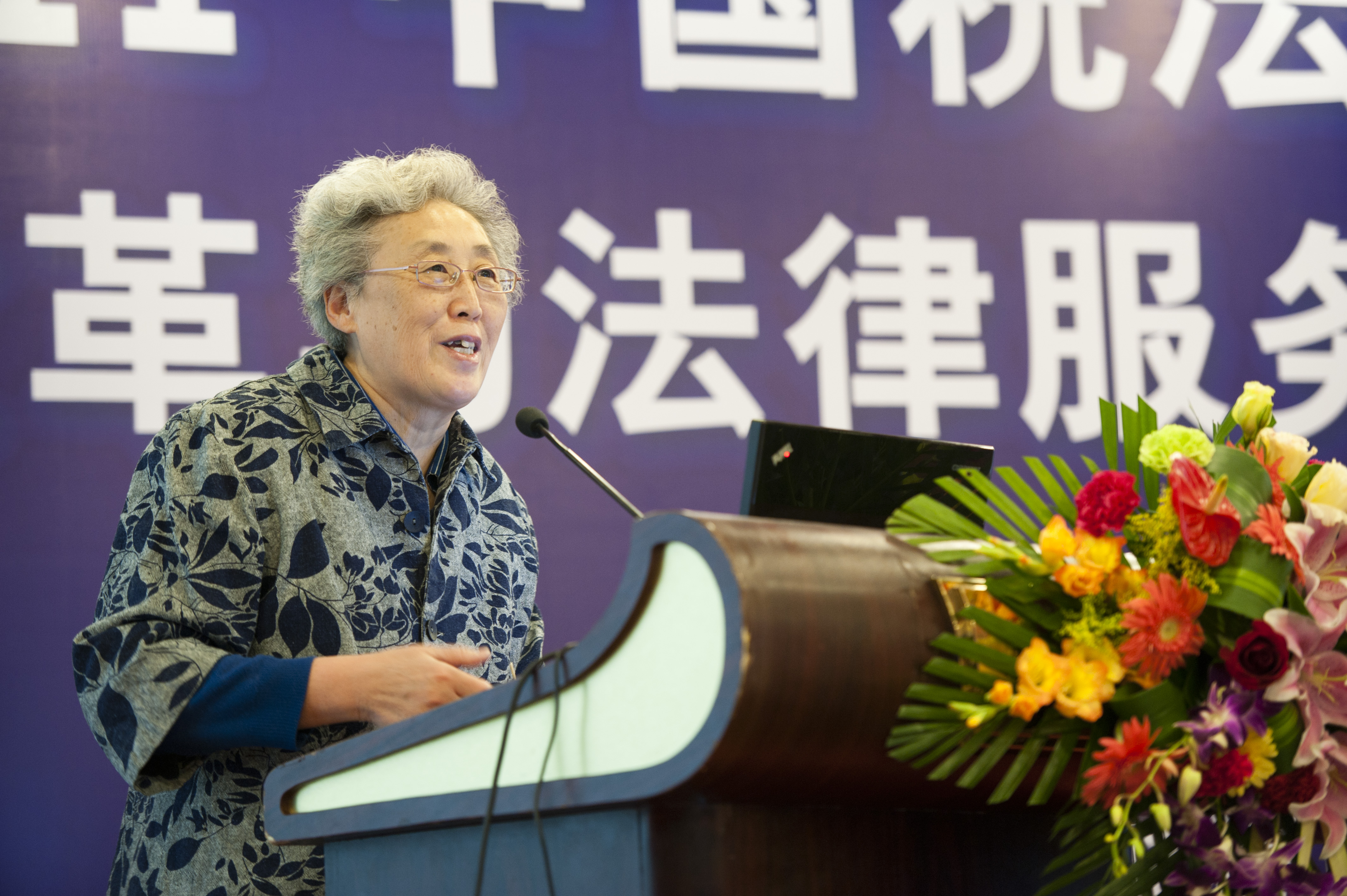
The picture shows the speech of researcher Ni Hongri
According to researcher Ni Hongri, the construction of China's tax legal system is characterized by the period of transition, which depends on the implementation of the strategy of ruling the country according to law. After two major tax reforms, the framework of the tax legal system adapted to the socialist market economic system has basically been established and will be continuously improved. China's macro tax burden compared to the international is not high, but counting non-tax income, the entire government revenue accounted for the proportion of GDP is not low, vigorously promote structural tax cuts is a policy choice, real estate tax is a hot spot of direct tax reform, the current policy advice is to unify the property tax and the urban use tax, set up as a unified tax of real estate tax, and is now doing a pilot to promote the advancement of the real estate tax reform will be help the process of direct tax reform.
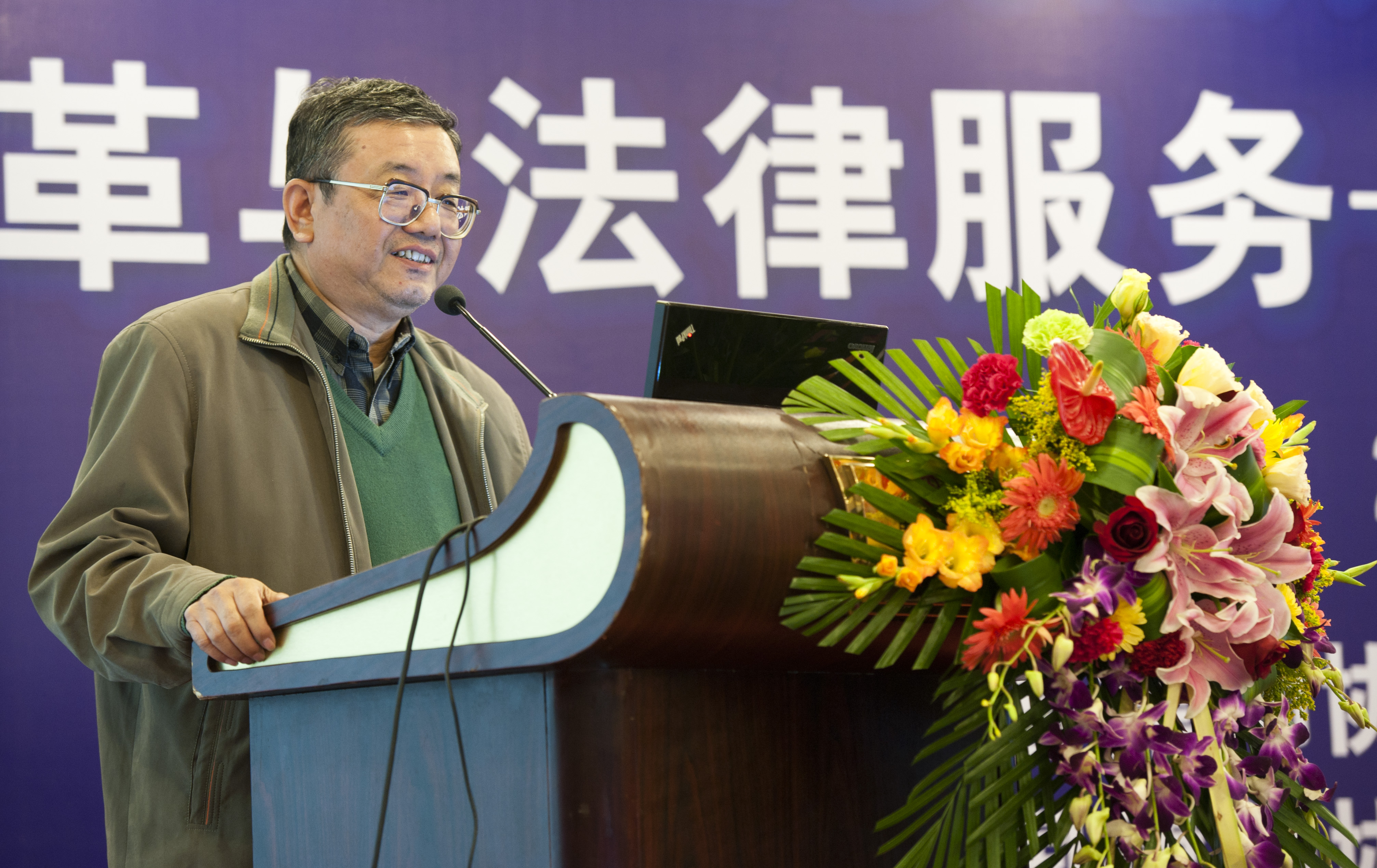
Pictured is Director Sun Gang's speech
Mr. Sun Gang focused on the interpretation of tax law provisions and terms, and believed that the current tax law provisions are too principled and too simple, while the attribution of the right to interpret the legal provisions is vague. The introduction of the latest interpretation of the Marriage Law has led to the controversy of whether or not to levy deed tax on the addition of the name to the property, and the practice standard is not the same in different places, mainly because of the unclear definition of the tax law on the transfer of the property ownership of the house is the form or substance of the transfer. For the Mid-Autumn Festival mooncakes need to be levied on the legal basis of personal income tax is also unclear, mooncakes can not be clearly incorporated into the current Personal Income Law enumerated in the 11 items of taxable personal income. The solution to these problems requires more suggestions from tax lawyers.
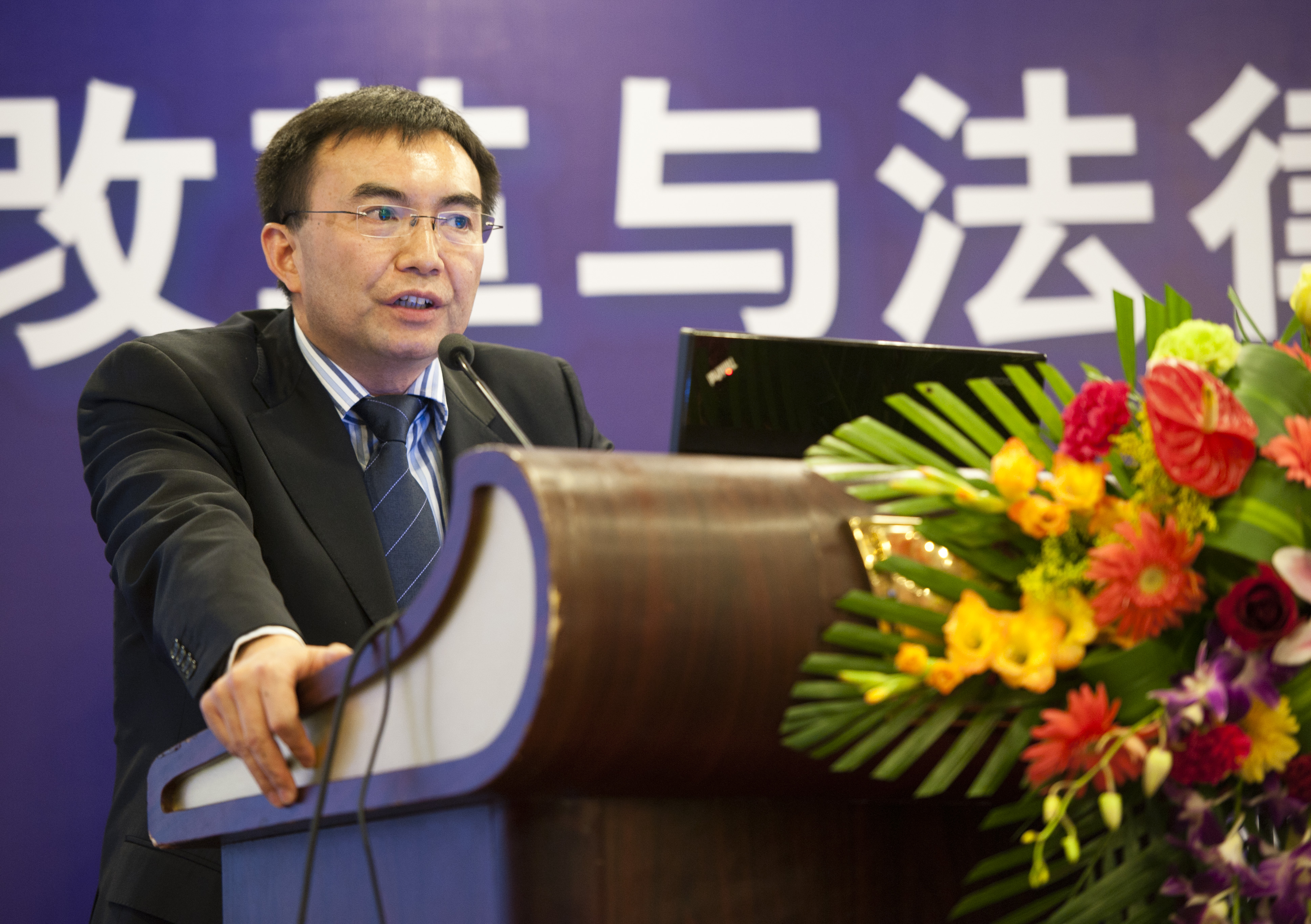
The picture shows the speech of researcher Teng Xiangzhi
Teng Xiangzhi firstly talked about the disconnection between tax law and civil and commercial law, and secondly proposed that the characterization of transaction is a core concept of tax jurisprudence, focusing on the analysis of financial leasing, real estate enterprise sale and leaseback, financing and securities and other transaction behaviors, especially with more than two or more subjects or more than two legal relationships of the complexity of the transaction behavior of the characterization of the problem, and finally that the tax law is in a sense a case law system, which is a direct decision of tax obligations and the characterization of the transaction. Finally, he thinks that tax law is in a sense a system of case law, in which the characterization of the transaction directly determines the tax obligation, tax jurisdiction and other issues.
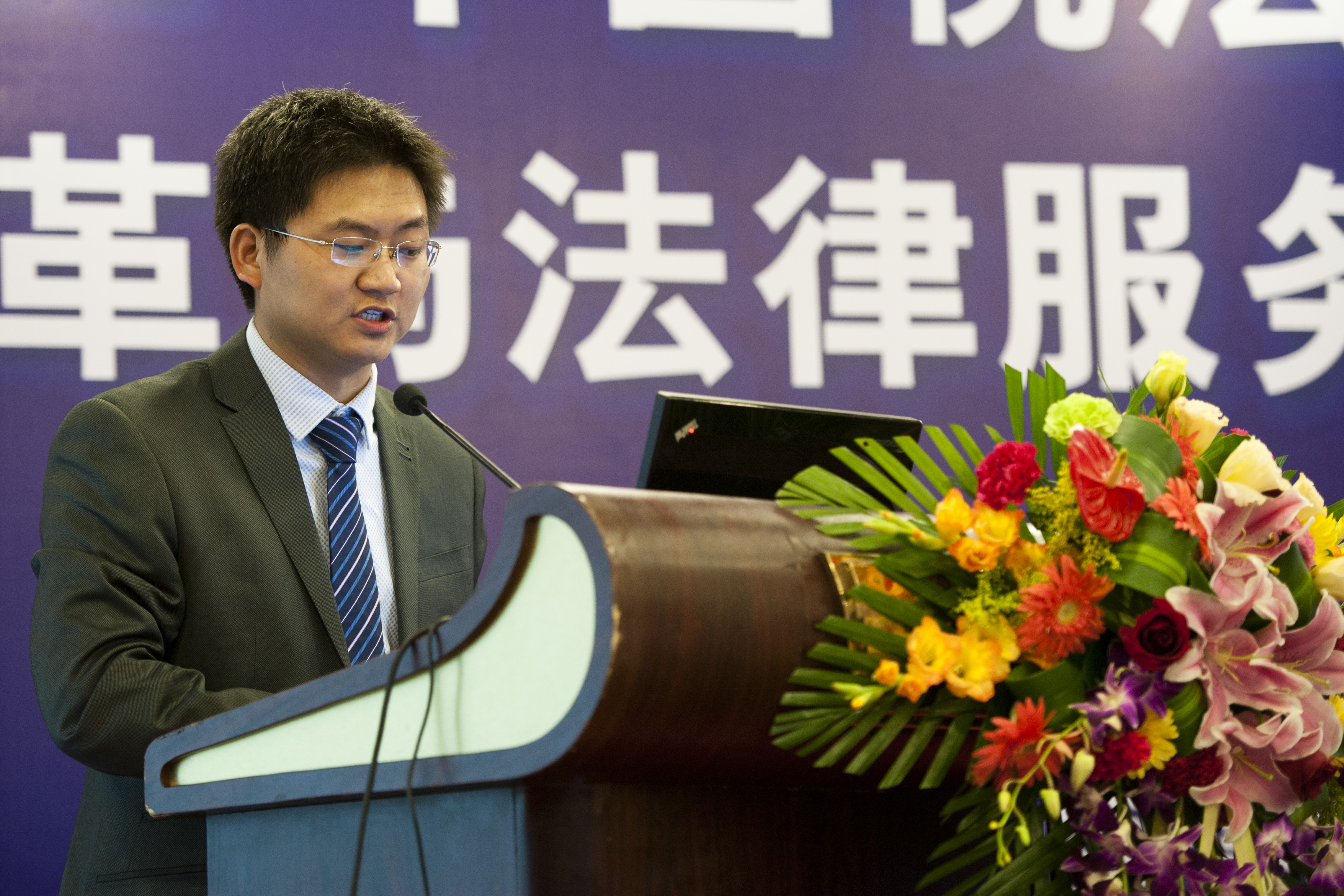
Mr. Shi Zhiqun speaks
Mr. Shi Zhiqun believes that tax preferences are both direct economic benefits and potential legal risks for enterprises. Combined with the fact that there are too many legal documents at various levels, joint management by multiple departments, and mixing of local financial support and tax preferences, etc., he proposes that the tax lawyers should, in accordance with the requirements of science, reasonableness, practicability, efficiency, wholeness, and prediction, understand the situation of the industry, analyze the preferences of the industry, study the feasibility of application, prepare documents according to the procedure, submit information, and then submit the documents to the tax attorney. It is suggested that tax lawyers should follow the requirements of scientific, rational and practical, efficiency and prediction to understand the situation of the industry, analyze the industry preferences, study the feasibility of application, prepare the documents according to the procedure, submit the information and follow-up coordination and follow up, etc.

The picture shows the speech of Mr. Xu Linyong
Mr. Xu Linyong analyzed the control of financial and tax legal risks in the contract review, firstly, he introduced the current enterprise tax risk management there are superstitious relationship, that the tax is a financial matter and gullible to all kinds of illegal tax avoidance tools and other misunderstandings, secondly, he combined an enterprise in order to solve the problem of employee housing and land holders to cooperate in the development of building housing to produce a huge tax risk of the case, put forward the economy and legality is the two key points of the control of the legal risk, and finally, he believed that the economic and legal risks are the two key points. Finally, he believes that tax law is a basic legal skill that modern lawyers need to have, and traditional lawyers should transform from text analysis to text analysis and data analysis.

The picture shows Prof. Leung Man Wing's speech
Prof. Liang Wenyong suggested in his comments that tax lawyers are essentially a very important link in the bridge of economic relationship between the state and the people, and in the background of the current tax system, in which indirect tax is the main body and the legal tax burden is high, it is suggested that tax lawyers should emphasize their own brand and dignity, explore profit models, and in the process of adapting to the adjustment and change of the national social relationship, they should jointly work on promoting the reform of the national tax system and enhancing the construction of the public sphere.
Ⅳ. New Development of Tax-related Legal Practice in the Context of Internationalization
The first session of the theme seminar "New Development of Tax-related Legal Practice in the Context of Internationalization" was moderated by Professor Chen Naixin of Xiangtan University Law School, and speeches were delivered by Shi Miao, Partner of Beijing Dacheng (Guangzhou) Law Firm, and Gao Yungen, Deputy Director General of Non-Resident Taxation Management Department of International Division of State Administration of Taxation (SAT) respectively. The second session was moderated by Prof. Zhu Daqi, Director and Professor of the Department of Economic Law, School of Law, Renmin University of China, with speeches by Mr. Cao Fuli, Partner of Jones Day, and Mr. Xu Yan, Associate Professor of the Institute of Comparative Law, China University of Political Science and Law.
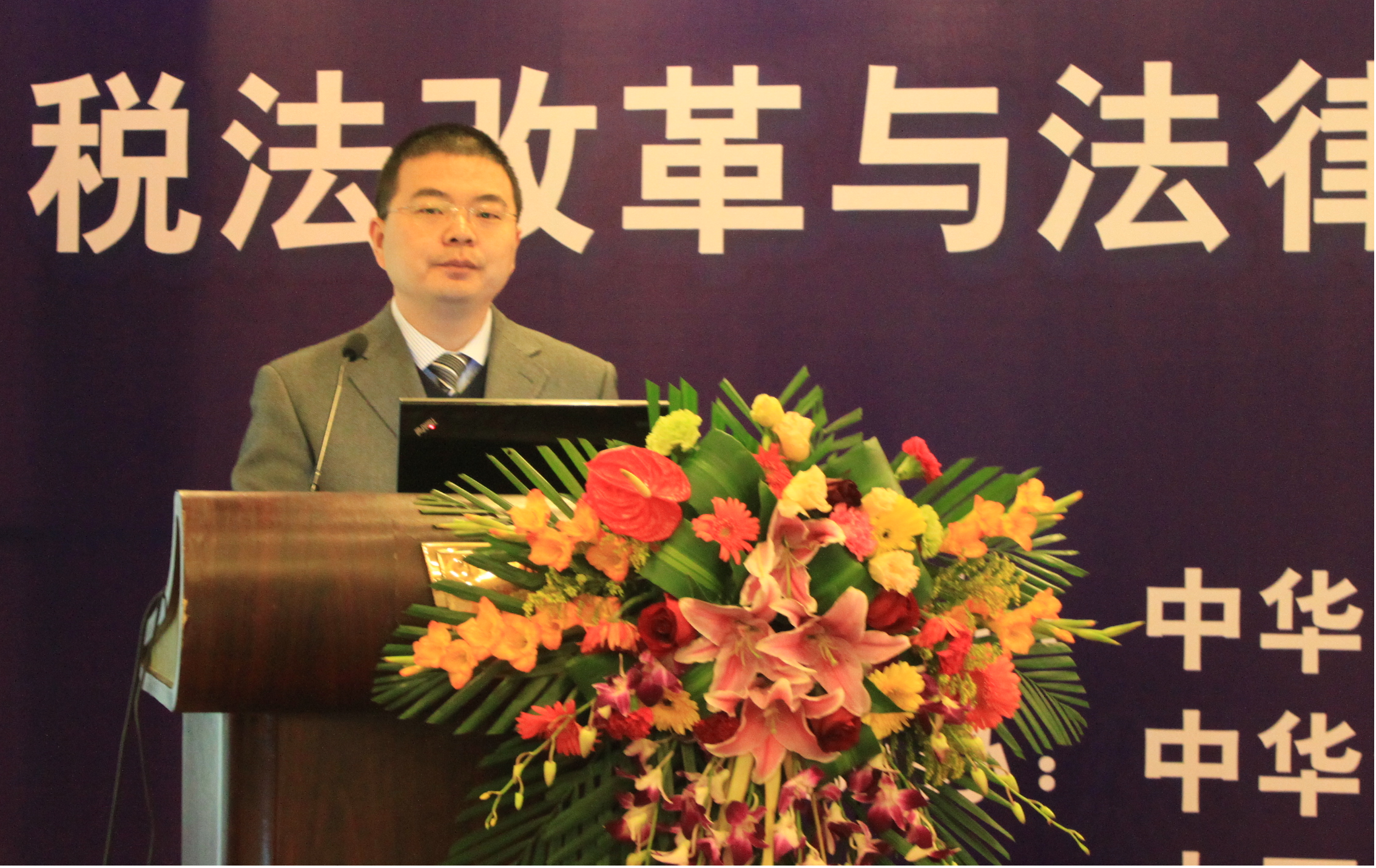
Mr. Shi Miao speaking
Mr. Shi Miao analyzed the tax-related management of foreign companies in China from the perspective of risk control, and believed that the conflict between the current business model such as franchising and the existing tax system, the differences in various legislations as well as the ambiguity of the tax law lead to the incorrect application of the tax law, the differences in the Chinese and foreign tax management systems such as the characteristic system of controlling tax by invoices in China, the differences in the meanings of some basic concepts of Chinese and foreign tax laws lead to the differences in the tax concepts of Chinese and foreign companies, and the differences in the position of the investing country and The different positions of investor countries and sovereign countries as well as the differences in the criteria for recognizing permanent establishments have created the problem of double taxation. In addition, the mixing of the business of affiliated companies, the improper production of legal texts, the conflict of interests between local governments and enterprises, and China's increasingly strengthened tax supervision have all brought about tax risks for foreign companies in China.

The picture shows the speech of Mr. Gao Yungen, Director of the Division
Director Gao Yungen introduced the new trend of cross-border tax source management. At present, there is a need to improve the clarity of policy requirements in the management of non-resident enterprises, and the requirement for enterprises to submit foreign exchange certificates is a transitional means; the management of non-resident individuals emphasizes the one-person-one-file for foreigners, and the country has introduced some policies on the collection and exemption of residents' offshore income tax to encourage enterprises to go abroad. The management of cross-border tax sources has difficulties in information collection, differences in tax systems between countries, difficulties in tax recovery, high professional requirements for personnel and constraints imposed by international tax agreements, etc. Intelligence exchanges can strengthen information collection. Finally, he proposed to analyze the future trend and direction of cross-border tax source management in terms of improving the policies related to residents and non-residents, utilizing modern information means, drawing on the research methodology of international organizations, strengthening the professional management of tax sources, upgrading the ways and means of offshore management, and guiding to bring into play the positive significance of tax intermediaries for tax law compliance.

The picture shows the speech of Mr. Cao Fuli
Mr. Cao Fuli firstly proposed that tax is an important factor in cross-border transactions, which brings differences in the choice of entity, form of acquisition and exit mechanism. Secondly, he combined with the case of cross-border M&A investment structure design, and analyzed in detail the impacts on profits and dividends brought by the transaction link, operation link, exit link, and some special tax policies of the investment destination, and optimized the design of the transaction structure. Finally, he believes that lawyers need to do due diligence in terms of financial status, civil and criminal liability, utilization of future losses, preferential treatment and other aspects of risk control.

The picture shows Prof. Xu Yan's speech
Prof. Xu Yan interpreted some important issues in the implementation of enterprises going out and international tax agreements at the theoretical level. She talked about the purpose of signing international tax agreements, the legal status of international tax agreements, and the development of international tax agreements in our country from the current reality of Chinese enterprises going out to the world, and the role of international tax agreements in promoting the economy. At the same time, she took the form of cases and made an in-depth and systematic study on some major issues in international tax implementation, such as determination of residency status, concession use, permanent establishment identification, international tax credits and so on.
Ⅴ. Tax Disputes and Protection of Taxpayers' Rights and Interests
The theme of "Tax Disputes and Protection of Taxpayers' Rights and Interests" was hosted by Yang Houlu, a lawyer of Junhe Law Firm. Zhou Xuzhong, a professor and vice dean of the School of Law of Capital University of Economics and Business, and Jia Shaohua, the director of the Institute of Taxation Education of the Central University of Finance and Economics and the director of the Yangzhou Institute of Taxation of the State Administration of Taxation, delivered speeches. Professor Tang Gongliang, Dean of the School of Taxation of Central University of Finance and Economics, commented on the speeches of the guests.

The picture shows Prof. Zhou Xuzhong's speech
Prof. Zhou Xuzhong used case study to explain the risk of tax enforcement. He believed that tax embodies the relationship between the public rights of the state and the private rights of the citizens, and the main reason for the risk of tax enforcement is the imperfection of laws and administrative regulations based on which the enforcement is carried out, and the lack of awareness and ability of law enforcement agencies, as well as violation of laws by law enforcement officers, which causes adverse impacts and consequences to taxpayers. Combined with the errors in tax subjects, application of procedures and application of laws in the case of real estate enterprise audit in a certain province, he emphasized that lax tax enforcement may cause and intensify the conflicts between tax enforcement authorities and taxpayers on the one hand, and is not conducive to the enhancement of tax compliance as well as the formation of a harmonious relationship between taxpayers and taxpayers on the other hand.
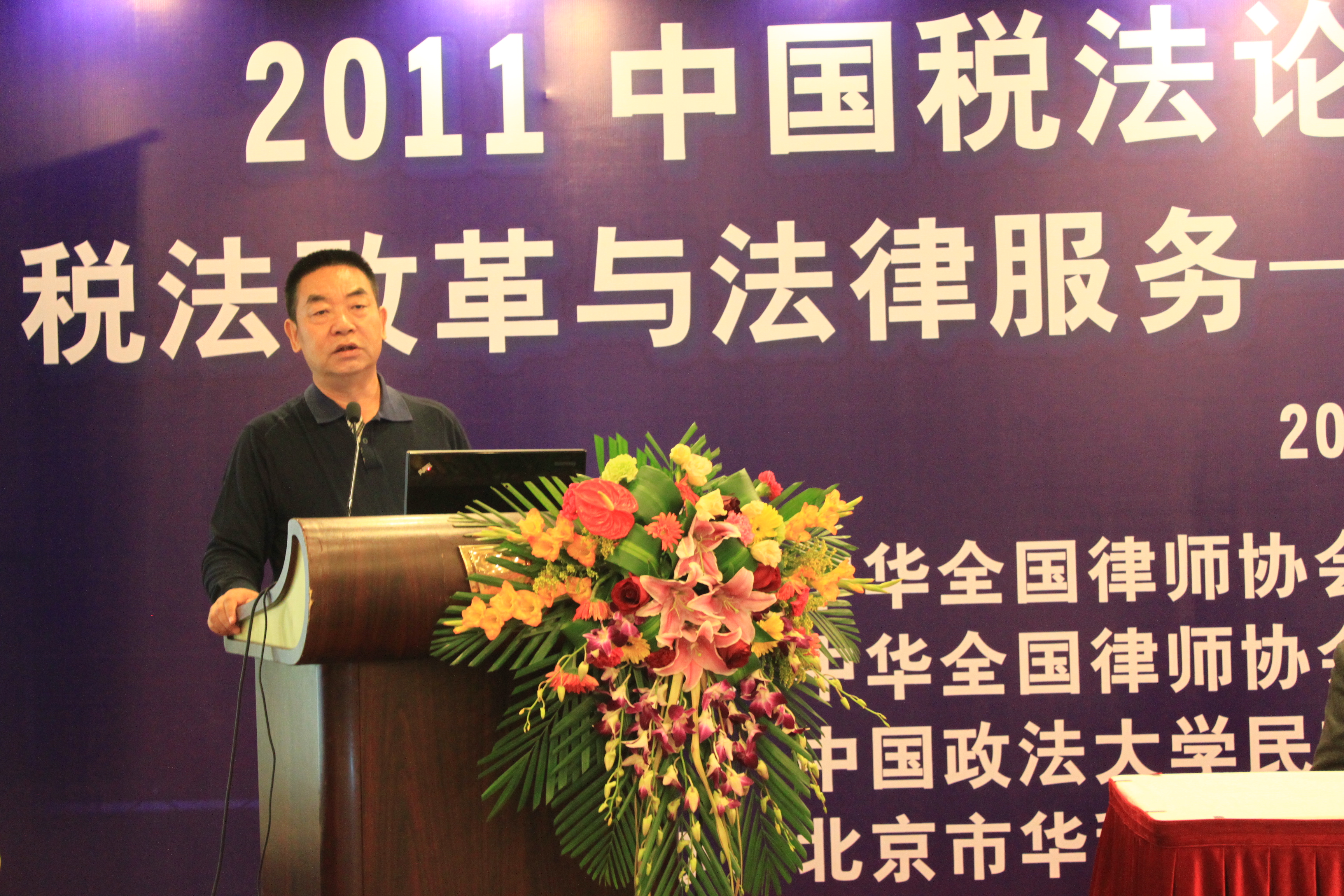
The picture shows the speech of Director Jia Shaohua
Mr. Jia Shaohua, the director of the institute, studied the risks related to tax collectors, taxpayers and tax law intermediaries, and believed that we should start from strengthening the construction of the tax legal system, raising the level of legislation, determining the more reasonable tax burdens, correctly dealing with the interests of the state, enterprises and individuals, effectively improving the transparency of the tax management and finances, establishing the supervision mechanism for tax collection and use in accordance with the law, reasonably defining the tax collection rights of the tax collectors, respecting the legitimate rights and interests of taxpayers, and giving full play to the tax law enforcement authorities and the taxpayers. The legitimate rights and interests of the taxing body, give full play to the role of tax lawyers and other intermediaries to enhance the cooperation consciousness of the whole society to follow the tax law, so as to realize the coordination between the government taxing body and the enterprise taxing body and to avoid the possible tax risks.
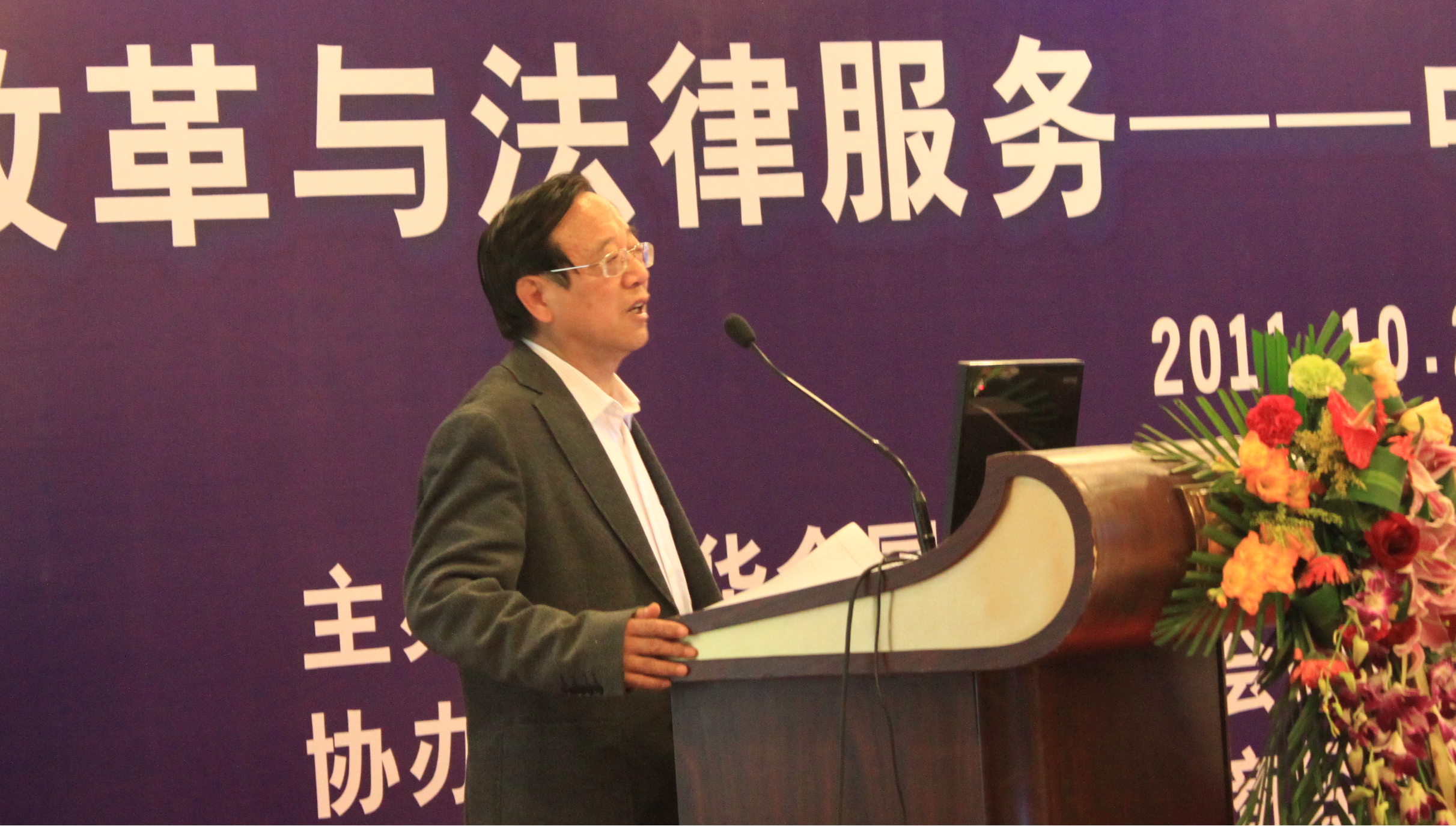
The picture shows Prof. Tang Gongliang's speech
Prof. Tang Gongliang suggested in his comments that the law enforcement concepts and risks should be prevented through the relevant legislation on law enforcement supervision and the introduction of judicial supervision; the protection of taxpayers' rights and interests, if expressed in the Basic Law of Taxation or even in the Constitution, should be best considered in the process of revising the law on the administration of taxation; and the awareness of taxpayers' rights such as the right to participate, the right to consent, and the right to be informed should be raised in the publicity of tax law.
Ⅵ. Closing Ceremony of the Forum
The closing ceremony of the Forum was held in the afternoon of 28th, chaired by Mr. Jia Shaohua, Director of Taxation Education Research Institute of Central University of Finance and Economics; Mr. Xu Shanda, President of China Association of Registered Taxation Technicians and former Deputy Director General of the State Administration of Taxation, made a speech; Mr. Rihong Li, Deputy Secretary General of the All-China Lawyers' Association, read the list of winners of the excellent papers; and Mr. Liu Tianyong, Director of Hwuason Law Firm of Beijing Municipality, made a closing speech on behalf of the organizer.

Pictured is President Xu Shanda's speech
In his speech, President Xu Shanda deeply analyzed some problems in the process of tax legislation, law enforcement and judiciary, firstly, he pointed out that upgrading the level of tax legislation could not solve the status quo that the division of authority and supervision between the National People's Congress and the government were not clear, secondly, he considered the establishment of a circuit tax court to solve the issue of better protection of the rights and interests of taxpayers in tax litigation under the current judicial system, and finally, he analyzed the problems in the procedural legislation of tax administration and informatization, and so on. Finally, it analyzes the procedural legislation on tax collection and management and the problems in informationization. In terms of playing the role of tax lawyers, he pointed out that tax lawyers and certified tax accountants should combine with each other and work hand in hand, and proposed that the CTA could carry out relevant exchanges and cooperation with the National Lawyers Association.
Mr. Li Hong, Deputy Secretary General, read out the list of winners of the excellent papers of the forum. Prof. Shi Zhengwen of China University of Political Science and Law and Mr. Teng Xiangzhi, Associate Researcher of Institute of Finance and Trade, CASS, were awarded the first prize; Prof. Zhu Daqi of Renmin University of China, Mr. Liu Tianyong, Director of Beijing Hwuason Law Firm, Mr. Liu Fuyuan, Deputy Director of Taxation Law Committee of Shanghai Lawyers' Association, and six others were awarded the second prize, and nine other third-prize papers were also selected. President Xu Shanda and Deputy Secretary General Li Hong awarded certificates to the winners and took a group photo together.
In his speech, Director Liu Tianyong informed the plan of publishing the "2011 China Tax Law Forum and the First China Tax Lawyers Forum Proceedings" after this forum and the publication plan of the book "China Tax Law Annotated", which is currently being edited by Huatax and has three million words, and expressed that he would cooperate and communicate with tax lawyers as well as tax law intermediary organizations and make progress together, so as to promote the construction of tax legal system of our country. The forum is the second session of the China Tax Law Forum.
This is the second China Tax Law Forum and the first forum focusing on the development of China's tax lawyers. Experts, scholars and practitioners gathered together and achieved fruitful results in the enthusiastic discussions, which played a guiding role in the direction of the practice and professional improvement of tax lawyers in the process of promoting the reform of China's tax law.





